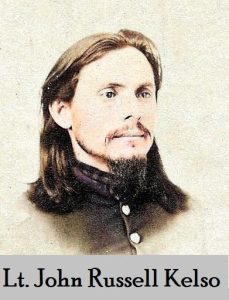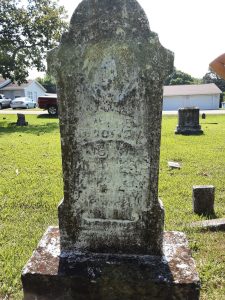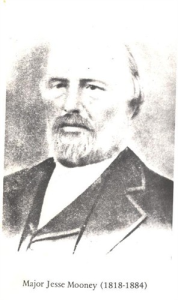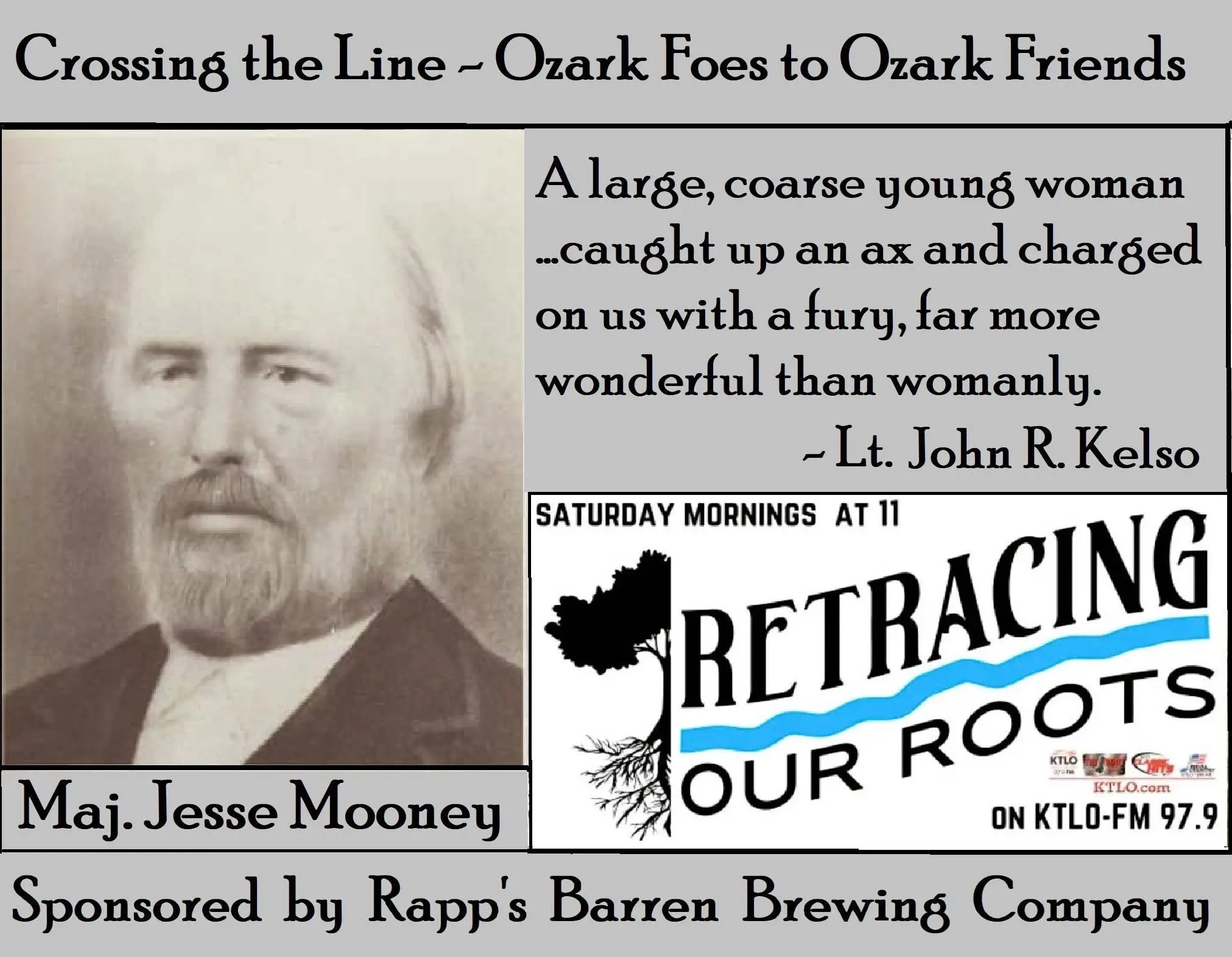𝙍𝙚𝙩𝙧𝙖𝙘𝙞𝙣𝙜 𝙊𝙪𝙧 𝙍𝙤𝙤𝙩𝙨
Crossing the Line- From Ozark Foes to Ozark Friends
Welcome back to Retracing Our Roots, as Sammy Raycraft and Vincent Anderson continue the Civil War saga on the White River.
First we had more questions about last week’s program and the fate of the Methvin family.
Corasandra “Cora” Methvin (née Nowlin) was born circa November 1831 in Alabama to John Nowlin and Nancy Dickson. She married John Woodward Methvin in 1847 and had four children: Alonzo, Josephine, Hannah, and James. The family moved from Alabama to Arkansas, settling in Carroll and Marion Counties. Her husband died in a Confederate prison in 1862. Cora remarried John Keeter in 1875. Widowed again by 1900, she later lived with her daughter Josephine in Oklahoma. Cora spent her final years with family and died in 1918 at age 86. Three of her four children outlived her.
Next, we plunge into our main storiey of foes becoming eventual friends.
By late November 1862, Union Lt. John R. Kelso and Captain Burch prepared for another expedition into northern Arkansas with two objectives: capture a Confederate officer named Captain Mooney and destroy the saltpeter caves near Yellville, which were being used to manufacture gunpowder for the Confederacy.
Interestingly, Confederate Captain Mooney had recently captured some Union militia but treated them honorably, returning their blankets, feeding them, and escorting them beyond his lines. Kelso was struck by this unusual kindness and remarked, “Boys, we must capture that old Captain and repay him for his magnanimity.”
With about 50 men, we departed from Ozark, Missouri, and camped the first night at Beaver Station. Knowing our force was too small for a frontal assault, they relied on stealth and surprise, moving through sparsely settled country under the guidance of an experienced hunter who knew those hills well. The Union soldiers reached a Confederate picket post several miles from Mooney’s residence and silently surrounded it. The three Confederate pickets surrendered without a sound.
Next, Kelso stormed a small log house used as a camp. Inside, they surprised three sleeping guards. Kelso explained, “A large, coarse young woman, however, who was sitting by the nearly burned down fire, caught up an axe and charged upon us with a fury far more wonderful than womanly. Not knowing but that we might have a hand to hand fight in the house, several of us entered with drawn sabers. These we instantly placed at the breast of this formidable Amazon, threatening to run her through at once unless she dropped the ax. She did drop it, but I suspect that we would have fared badly, had we not greatly outnumbered her.”
Fearing she might alert Mooney, Kelso pretended to leave guards with orders to shoot anyone who tried to send a warning. It was a bluff. The captives also informed Kelso that Mooney was likely at his home with few guards. Their intelligence proved correct. They decided to wait until dawn for the final move. Meanwhile, an officer took a small detachment to secure key positions. The operation was progressing as hoped, and Mooney’s capture seemed within reach.
As Lieutenant John R. Kelso and Major Burch approached a secluded cabin at the break of morning light. They advanced cautiously and burst into his cabin just before dawn, catching Mooney and his family completely by surprise. Downstairs, four men were captured in their nightclothes. As Kelso rushed upstairs, he bellowed that if a single shot were fired, the house would be burned to the ground with all inside. From a dark corner, Captain Mooney responded, “I’m here!” Kelso barked threats and curses, but Mooney calmly repeated, “I surrender! I surrender!”
Once the tension eased, Captain Mooney, ever the southern gentleman, invited his captors downstairs to enjoy a hearty breakfast before departing. While breaking bread, an unexpected warmth began to develop. Mooney handed his pistol to Kelso and gave his rifle to Major Burch, asking only that they be returned when the war ended.
Captain Mooney was taken to Ozark, Missouri, and held as a prisoner—but not in chains. Instead, he was treated as a guest of Lieutenant Kelso at the fort in Christian County. In time, what began as an armed standoff blossomed into mutual respect. Kelso would later say he considered Mooney “one of nature’s true noblemen.”
Before the war’s end, Mooney was promoted to major. He was captured again later and, honoring his word and character, never returned to the Confederate cause.



---
Another heartfelt thanks to our hometown supporters at Rapp's Barren Brewing Company. Their your steadfast support fuels Retracing Our Roots and keeps these stories alive! This is authentic Ozark History and storytelling at its finest. Without the passion, heritage, and partnership of folks like Rapp's, we'd never revive these tales and pass them along, one generation at a time.
Next time you're in Mountain Home, stop by Rapp's downtown and say thank you to Russell Tucker and his amazing team – true champions of local history that still echoes through these hills.
Sip. Savor. Sojourn.
— 𝙍𝙚𝙩𝙧𝙖𝙘𝙞𝙣𝙜 𝙊𝙪𝙧 𝙍𝙤𝙤𝙩𝙨
Crossing the Line: From Ozark Foes to Ozark Friends











